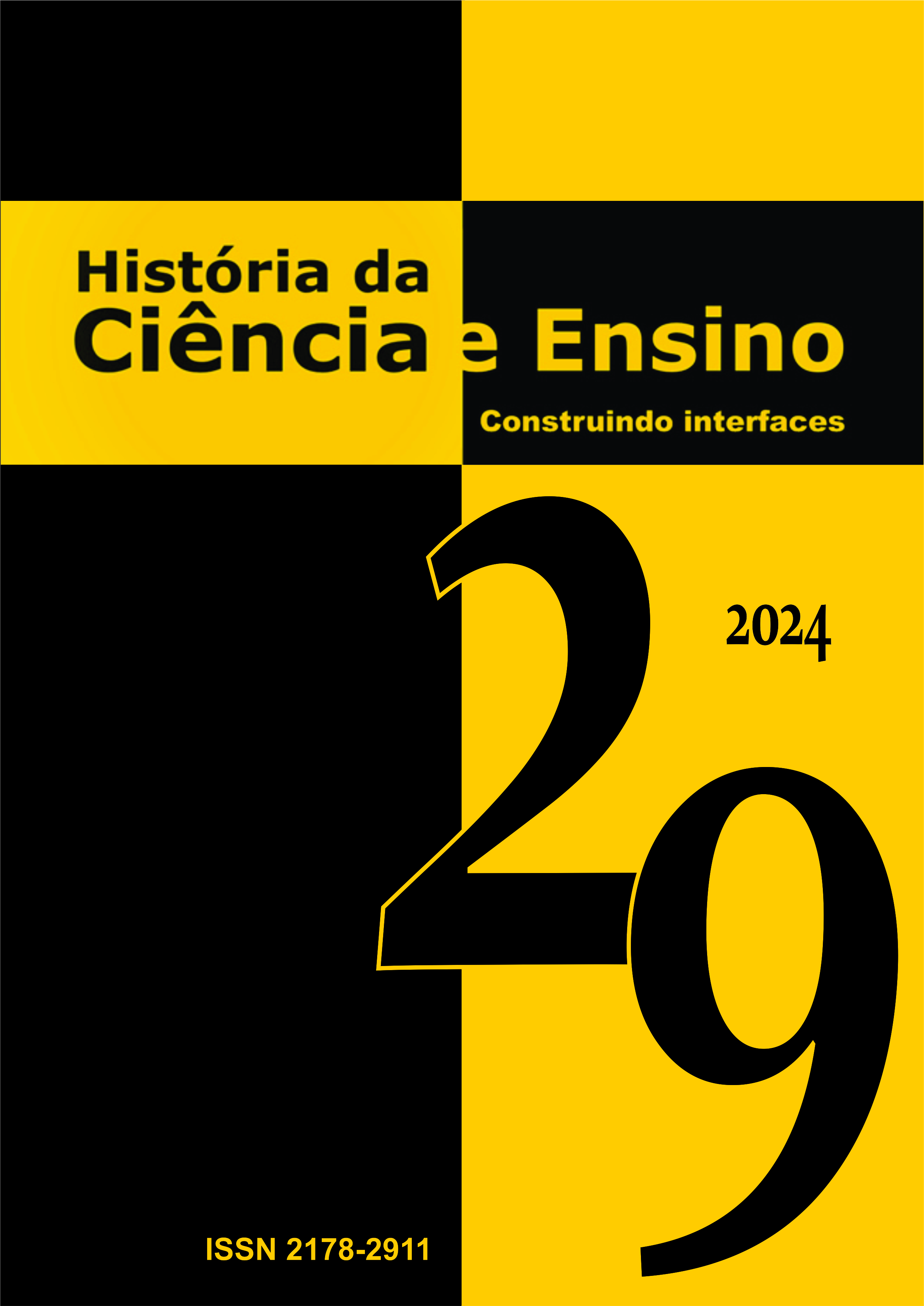Ciências no currículo do Curso Normal Rural da Vila de Santa Izabel, Estado do Pará (1931-1936)
DOI:
https://doi.org/10.23925/2178-2911.2024v29p22-35Palavras-chave:
Curso Normal Rural, Ciências, Cultura, ParáResumo
Resumo
O presente artigo teve como objetivo analisar as condições que possibilitaram a inserção das ciências nos programas de ensino do Curso Normal Rural, criado em 1931, situado na vila de Santa Izabel do Estado do Pará. Para atingi-lo, a pesquisa foi norteada pelas seguintes questões: como essas ciências e o curso que as abrigou encontraram condições de se viabilizar na cultura local? Que ciências foram essas, como foram representadas e como se situaram em relação as demais disciplinas no interior dos programas de ensino adotado? O conceito de cultura e de representação cunhados por Hall (2016) foram fundamentais para a análise das fontes historiográficas, tais como, decretos e regulamentos governamentais, programas de ensino e demais discursos que passaram a se inserir na cultura local. Entre essas representações havia as que requeriam a implantação de um ensino rural orientado para a prática de uma agricultura que seria eficiente, intensiva e, ao mesmo tempo, com profundo apreço pela terra e pela natureza, com fins de lidar com o problema do êxodo rural enfrentado na época. As disciplinas científicas que foram adotadas no programa do Curso Normal Rural de Santa Izabel, foram as denominadas: Ciências Naturais, em 1931 e Ciências Físicas e Naturais, em 1934.
Palavras-chave: Curso Normal Rural, Ciências, Cultura, Pará.
Abstract
The aim of this article was to analyze the conditions that made it possible to include the sciences in the teaching programs of the Rural Normal Course, created in 1931, located in the town of Santa Izabel in the state of Pará. To achieve this, the research was guided by the following questions: how did these sciences and the course that housed them find the conditions to become viable in the local culture? What were these sciences, how were they represented and how were they situated in relation to the other subjects within the teaching programs adopted? The concept of culture and representation coined by Hall (2016) was fundamental to the analysis of historiographical sources, such as government decrees and regulations, teaching programs and other discourses that became part of local culture. Among these representations were those that called for the implementation of a rural education oriented towards the practice of agriculture that would be efficient, intensive and, at the same time, with a deep appreciation for the land and nature, in order to deal with the problem of rural exodus faced at the time. The scientific subjects that were adopted in the program of the Santa Izabel Rural Normal Course were: Natural Sciences, in 1931 and Physical and Natural Sciences, in 1934.
Keywords: Rural Normal Course, Science, Culture, Pará.


